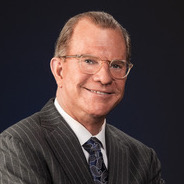5 minutes
Today’s credit union board elections have taken on a different hue. Consider these questions:
- When’s the last time your credit union had a contested election?
- How many qualified members are knocking down your door wanting to get involved in governance?
- Have you gone outside your membership looking for experienced leaders willing to serve on your board?
- Has your membership elected someone to the board who, previous to their nomination, was not a member chosen by the board?
- Has a director resigned, creating an opening that was filled by appointment?
- Have you profiled the board you think you will need going forward and found it difficult to find that talent among current members?
These are common challenges in the selection of board members. It’s rare for a board election to be contested. CEOs don’t like uncertainty, and boards are inclined to narrow the odds in favor of a selected candidate. Candidates usually prefer knowing they will be elected. We live under the false assumption that election to credit union boards is a democratic process when in reality it’s a pipeline mostly controlled by the board in power. I know one large credit union that requires any new board candidate to secure 500 member signatures in support of his or her candidacy. How often do you think a newcomer is willing to take on that requirement without support from the sitting board?
At the same time, recruiting board candidates from within the field of membership can be difficult. I encourage client boards that are having a hard time enlisting prospective directors to look outside their current membership for candidates who might meet their needed profile. As the environment becomes more competitive, it’s increasingly commonplace for boards to develop a profile of needed experience and competence they believe the credit union will need in the coming years and then actively recruit to that profile. Certainly boards should recruit within their membership. However, they can also look to community leaders within the field of membership but not currently enrolled to find that advanced competency they believe will be needed in the future.
In creating a profile of a director who will round out the board’s collective competencies, remember to envision where the credit union is going, not where it is now. What might those competencies include? Experience with mergers and acquisitions, technology as strategy, customer service for a digital age, marketing in a millennial marketplace, and political and business standing in the communities the credit union serves are just a few examples. These attributes may be hard to find in the existing membership.
Is it unethical for a member-based organization to look beyond its membership for a new board member? I’ve heard from some directors who prize the tradition that only existing members can represent the interests of their fellow members. These same directors insist that over time they can “train” almost any motivated member to be an effective director. But that may be a risky proposition. I hear from more and more boards that they are primarily concerned with getting enterprising, experienced and highly talented members for the next board seat. Think of it this way: If you are not likely to find the best blend of talent and experience among current members, is it not a fiduciary responsibility to search farther afield for qualified candidates? As a lifelong credit union member, I think so!
Try this exercise with your board: Over a couple meetings, identify the experience and competencies you believe will serve the enterprise and its members best over the next five years. Be specific about core leadership and business competencies, and be honest about what the competitive landscape might look like in the near future. With this profile in mind, conduct an exhaustive search among your members—not a skinny sentence in a newsletter, on Facebook or in a statement stuffer asking if anyone is interested in running for the board. Exhaustive means you enlist the board, management, and member service representatives in branches to help identify the members they know who might fit your profile. You may be surprised to find you have some, in which case you’ve fulfilled your duty to be assertively proactive in finding the right talent.
At the same time, consider who directors and executives might know outside your current membership but within the field of membership (or next planned step outside the current footprint) who might have the experience and leadership competencies that meet the profile you’ve created. Which community and business leaders might be worth getting to know? I’ve conducted this exercise with numerous boards and find that over several months of thinking, searching, and talking to their community contacts, they discover highly qualified candidates who might enhance their governance. While the process of narrowing down and screening this list from suspects to prospects to final targets can be a tedious task, it might also reap big benefits to your credit union over the next several years. This conversation alone may provide valuable strategic insights to your board.
A high quality board is not only superior to a group of average volunteers but also a part of your community brand. That’s another reason why you should encourage candidates who meet your high standards for competence and experience and affirm your commitment to diversity. When members and prospective members read the board bio sketches and see their photos on your website (yes, they should be there), will they be impressed with the profile and believe they can trust this group of individuals to be business savvy and sensitive to the needs of the membership?
Les Wallace, Ph.D., the 9Minute Mentor, is President of Signature Resources Inc. He is co-author of A Legacy of 21st Century Leadership and author of Principles of 21st Century Governance. He is a frequent speaker and consultant on leadership and governance.






